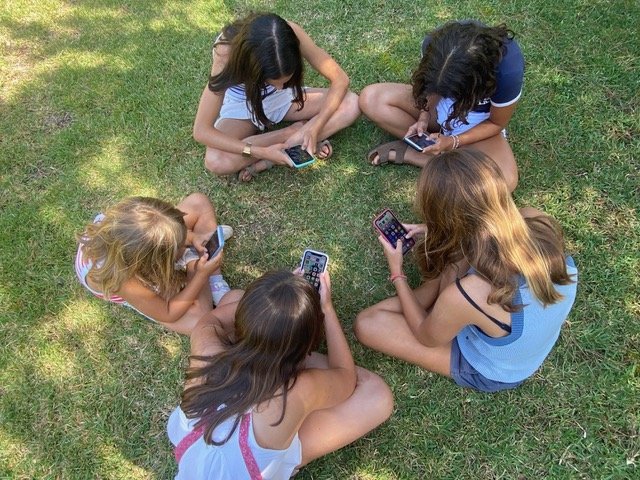The Mensana blog
In this space we publish, or re-publish, articles about any relevant issues regarding mental health by our Clinical staff and invited authors. Written in Portuguese and English.
The opinions expressed on this blog are personal and do not necessarily represent those of Mensana Mental Health
Psychoanalysis under occupation?
A couple of days ago, a random email landed in my inbox implying that I might be at risk of being made redundant. Surprisingly, the message hadn’t been sent by HR but by a scientific journalist who believes that AI systems are already so superior in their capabilities, that they will, in time, replace flesh and blood therapists. He proposed the term ’super clinician’, a cognitive agent, that mimics a human subject and is able not only to simulate empathy but also to provide personalised feedback and tailor-made support for each unique patient. In his opinion, we, the clinicians, are becoming extinct and he suggests that the sooner we accept the new reality, the better.
There’s no denial that in recent years digital technologies and advanced AI algorithms have become a huge part of our daily living. As a result, our lives have drastically shifted in the way we engage, socialise and interact with others and the world. In the mental health field, psychoanalysis has been overtaken by the rise of evolutionary psychology, neurological explanations, pharmacology, short-term therapy and cost benefit treatments. In 2023 the FDA awarded a Breakthrough Device Designation to a chatbot named ‘Woebot’ for the treatment of postpartum depression. Seemingly, the behavioural health chatbots are now able to provide therapeutic services that would otherwise have required professional assistance.
The idea of a cognitive AI agent impersonating a therapist seems absurd, yet I can’t help but feel deeply unsettled by this. When I try to contemplate on the current and future reality, my mind goes into overdrive. It disturbs me thinking that we have been actively and determinedly narrowing our minds. We prioritise synthetic relationships over meaningful emotional connection and seek alternatives to human contact. Does the emergence of the AI clinician mean that I now must move over and make room for ‘the new kid on the block’? Does the arrival of a disembodied, virtual surrogate mark the end of psychoanalysis? Are we really the dying species?
The dystopian scenario feels murky, violent and cataclysmic. I envisage the tanks and troops of artificial intelligence attacking humanity. I picture the AI agents taking ownership of our minds, memory and our future. The feeling of impotency against the superiority of AI makes me think of patriarchal violence and the colonisation. This too, has a flavour of legalised kidnapping and being held hostage without charge or trial.
It took some time before the overwhelming feeling of powerlessness and entrapment had worn out. But when it did, I at once regained my ‘self’, my mind and my ability to feel and think freely and critically. I reconnected with my humanity and humanness. In this reflective space, I understood that an algorithm will never be a human, no matter how convincingly it mimics one. A ‘super clinician’ will not have a consciousness or self-awareness and won’t be able to replicate the hidden complexities of human interaction. It will never be able to patiently investigate and unearth intricate layers of human mind. I believe that an AI agent’s common sense or logic will overlook the subtleties of the intuitive work of analysis. A synthetic therapist will never be able to hold a patient in mind in the way only a human is able to. It won’t be able to replicate kindness or the healing power of witnessing human distress. We, ‘the endangered species” believe in freedom of non-constrained thinking, we follow our intuition, we constantly wander, explore and seek new insights and barely settle for what’s in front of us. And those qualities are irreplaceable.
Since I no longer feel terrorised by the emergence of the AI troops, I am more
able to see the current reality in a less threatening light. Without magical thinking or denial, I can safely say that despite the uncertainty I am hopeful for the future. Just because the tech industry routinely exaggerates and hypes the AI capabilities and makes us feel that the end product will be God-like machines, it doesn’t mean that we should collude with their fantasy. We can’t succumb to the idea that those machines will evolve as a society. To survive and advance as the human race we need to preserve our humility and individuality, we have to continuously and consciously examine ourselves and make meaningful contributions to society. We ought to work collaboratively and cultivate inclusion and hold high ethical considerations.
This of course poses another question whether we, the human race, are able to coexist with the technology that is advancing at an unprecedented pace? Are we capable of entering a mutually enhancing, dialectical relationship with the AI agents? Can we ensure that our values align and that our freedom and well-being is protected? Peace, in essence, is not an ordinary state of mind. Human beings are not easily inclined to harmony and co-operation. Violence as a means for dealing with conflicts appears to be a long-learnt habit or ritual and it tends to repeat itself if not understood and worked through.
So, could we find a way of living together under the same roof without the risk of killing each other? Can we manage the conflict in a constructive, creative and non-coercive ways? Perhaps we could think of ourselves as one of those high conflict couples that come to therapy to seek containment and resolution to their struggles. The ultimate goal for them would not be to eliminate conflict but to create a healthier, more adaptive way of managing and resolving it while accepting each partner's uniqueness.






